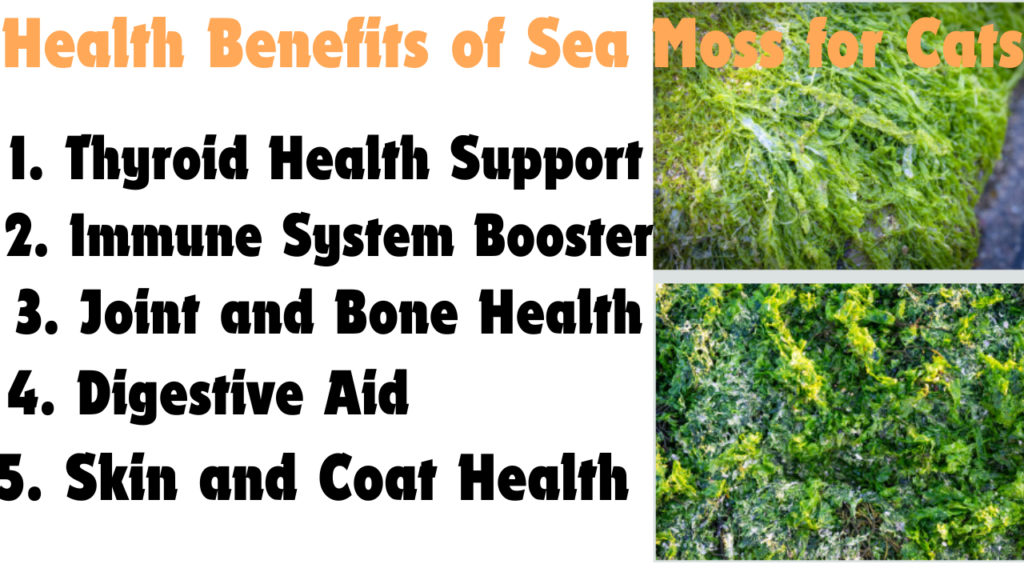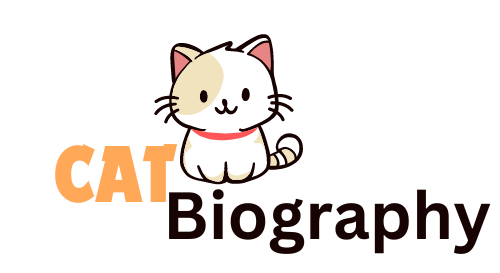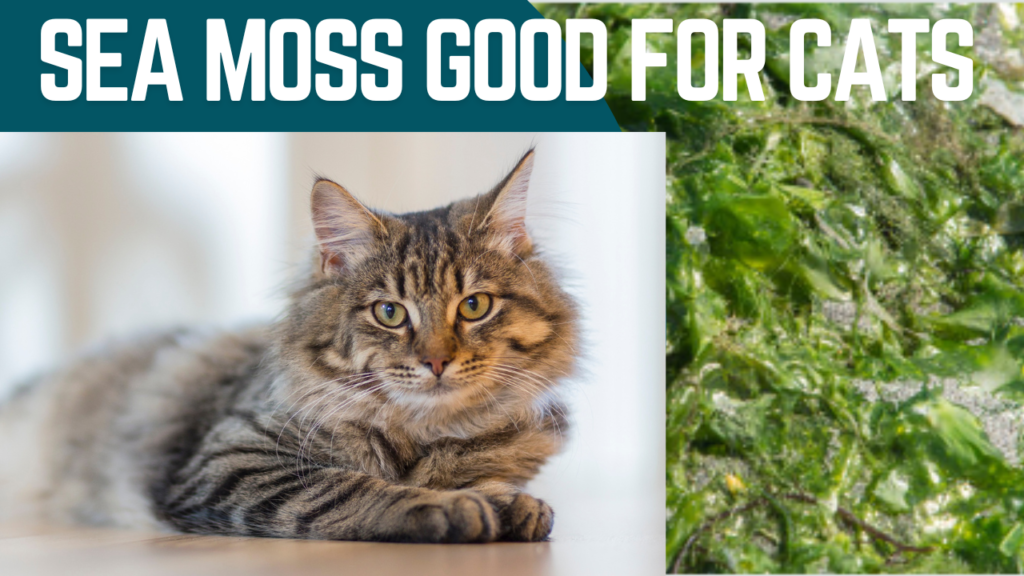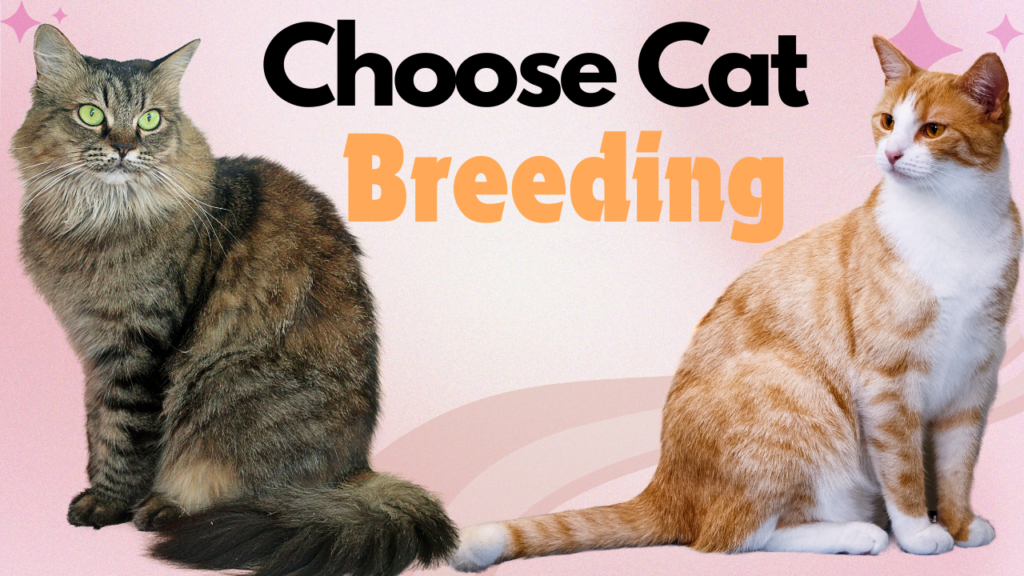What is Sea Moss?
Sea moss, also known as Irish moss (scientific name: Chondrus crispus), is a type of red algae found on the Atlantic coastlines of Europe and North America. It has become increasingly popular in health and wellness circles for its numerous potential benefits. Rich in nutrients such as iodine, potassium, calcium, and vitamins, sea moss is often consumed by humans for its ability to boost immunity, support digestion, and promote skin health.
But while sea moss offers plenty of benefits for humans, you may wonder if it’s also safe for your feline friends. Can cats consume sea moss, and if so, is it actually beneficial for them?
Is Sea Moss Safe for Cats?
The short answer is yes, sea moss can be safe for cats, but only in small, controlled amounts. Cats, like humans, need essential nutrients to stay healthy. However, their dietary needs are different from ours. Sea moss contains several minerals that can be beneficial to cats, but giving your cat too much can lead to issues. Let’s delve deeper into what this superfood offers and how it impacts feline health.
Nutritional Benefits of Sea Moss for Cats
Sea moss is packed with nutrients that can support various aspects of your cat’s health. These nutrients include:
- Iodine: Essential for proper thyroid function.
- Potassium: Supports muscle function and heart health.
- Calcium: Important for strong bones and teeth.
- Vitamins A, C, E, and K: Vital for overall health, skin, and vision.
- Iron: Helps with blood cell production and oxygen transport.
These nutrients can potentially improve your cat’s vitality and immune system. However, the key lies in moderation. As obligate carnivores, cats derive the majority of their nutrition from animal-based protein. Sea moss should be considered as a supplement, not a replacement for a cat’s regular diet.
The Possible Health Benefits of Sea Moss for Cats
1. Thyroid Health Support
Iodine, a key nutrient in sea moss, plays an essential role in maintaining thyroid health in cats. The thyroid gland regulates metabolism, and insufficient iodine levels can lead to hypothyroidism, a condition that slows down metabolic functions. In small amounts, the iodine in sea moss could support thyroid function, helping to keep your cat’s metabolism in balance.
2. Immune System Booster
Sea moss is rich in antioxidants, such as vitamins A, C, and E, which help to fight free radicals in the body. A cat’s immune system can benefit from these nutrients, making them better equipped to fend off infections and illnesses. A stronger immune system means fewer trips to the vet and a longer, healthier life for your pet.
3. Joint and Bone Health
The calcium and potassium found in sea moss are essential for maintaining healthy bones and joints in cats. Older cats, in particular, may benefit from these minerals, which help to alleviate joint pain and stiffness caused by aging or arthritis. If your cat struggles with mobility or bone health, small doses of sea moss might help support their joint health.
4. Digestive Aid
Sea moss contains mucilage, a gel-like substance that can aid in digestion. Mucilage helps soothe the digestive tract and can alleviate constipation or other minor gastrointestinal issues in cats. While cats don’t need as much fiber as humans, a small amount of mucilage may promote better digestion, particularly in older cats who may be more prone to digestive problems.
5. Skin and Coat Health
Vitamins and minerals found in sea moss, particularly vitamins A and E, are great for maintaining a healthy coat and skin. Cats prone to dry or itchy skin, or those with coat issues, might experience improvements with the introduction of these nutrients. A shiny coat is often a sign of a healthy cat, and sea moss can contribute to improving the overall texture and luster of your cat’s fur.

Risks of Giving Sea Moss to Cats
Despite the potential benefits, there are also risks to consider when giving sea moss to cats.
1. Iodine Overload
While iodine is beneficial in small amounts, too much iodine can lead to hyperthyroidism, which causes the thyroid to become overactive. This can lead to symptoms such as weight loss, increased thirst, and excessive urination. Therefore, if you decide to give sea moss to your cat, it is essential to monitor the amount carefully to avoid iodine overload.
2. Digestive Upset
Too much sea moss can also lead to digestive issues, such as diarrhea or upset stomach, due to the high fiber content and mucilage. Cats have a delicate digestive system, and introducing new foods or supplements too quickly can lead to gastrointestinal distress. Always introduce sea moss gradually and in small doses to avoid upsetting your cat’s stomach.
3. Contaminants in Wild-Harvested Sea Moss
If you’re sourcing sea moss from the wild, it’s important to ensure that it is free from contaminants. Sea moss can absorb toxins from polluted waters, which could be harmful to your cat. Opt for high-quality, organic sea moss from reputable sources to ensure it is safe for consumption.
How to Give Sea Moss to Cats
1. Dosage and Preparation
If you decide to add sea moss to your cat’s diet, it’s crucial to start with a very small amount, especially if your cat has never consumed it before.Speak with your veterinarian before introducing any changes to your cat’s diet. Sea moss can be added to your cat’s food in gel form or powder form, and should be given in tiny amounts — less than a quarter of a teaspoon to start. Observe your cat’s reaction over a few days, watching for any signs of digestive upset or allergic reactions.
2. Monitoring and Adjustments
Pay close attention to your cat’s health after introducing sea moss. If your cat shows signs of discomfort, digestive upset, or any behavioral changes, discontinue its use immediately. It’s also important to monitor long-term effects, especially when it comes to the thyroid, as iodine imbalances can take time to manifest.
3. Pairing Sea Moss with a Balanced Diet
Remember that sea moss is not a replacement for a balanced feline diet. It should only serve as a small supplement to your cat’s primary meals, which should consist of high-quality animal-based proteins. Sea moss may offer certain health benefits, but it should not be relied upon for your cat’s entire nutritional intake.
Conclusion: Should You Give Sea Moss to Your Cat?
Sea moss, in small, controlled amounts, may offer some health benefits to your cat, particularly for supporting thyroid function, boosting the immune system, improving digestion, and enhancing skin and coat health. However, it’s essential to consult with your vet before adding any new supplements to your pet’s diet. Overconsumption of sea moss can lead to health problems, particularly related to the thyroid, so careful moderation is key.
As with any supplement, balance is crucial to ensure your cat remains happy and healthy.


